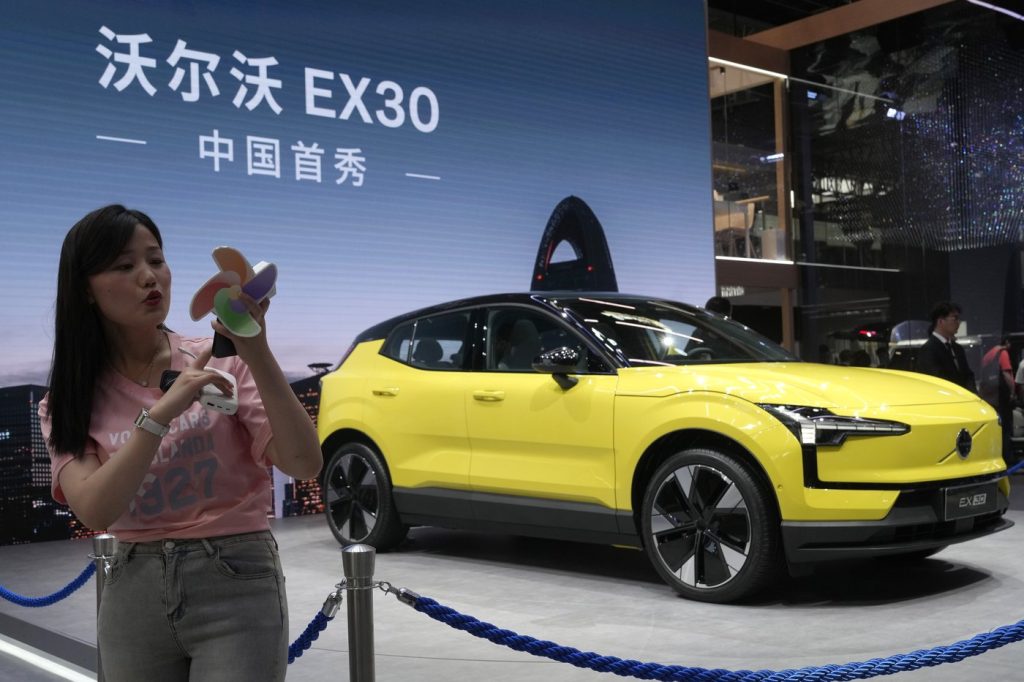BEIJING (AP) — In a significant shift within the automotive industry, sales of all types of electric vehicles (EVs) in China surged over 40% in 2024, according to industry data released on Monday. In contrast, sales of gasoline-powered automobiles witnessed a dramatic decline. This impressive rise in EV sales is indicative of changing consumer preferences as China continues to lead the global market in electric vehicle adoption.
Last year, a total of 31.4 million vehicles were sold in China, the world's largest automotive market, marking a 4.5% increase compared to the previous year. Notably, sales growth outpaced production growth, which stood at 3.7%. Such dynamics underscore the growing demand for vehicles in the country, particularly as consumers increasingly turn to more sustainable options.
Additionally, China’s exports of passenger cars experienced a notable jump of nearly 20% in 2024, reaching close to 5 million vehicles. Within this figure, exports of "new energy vehicles"—a category that encompasses battery electric vehicles (BEVs), fuel-cell vehicles, and plug-in hybrids—amounted to 1.28 million. This represented a 6.7% increase from 2023, signaling China’s robust position in the global EV market.
Domestically, sales of passenger cars rose by 13.6% in December alone, driven partly by incentives such as rebates for trade-ins. For the entirety of 2024, the sales of passenger cars in China increased by 3.1%, totaling 22.6 million. This uptick contrasts sharply with the performance of traditional gasoline and diesel vehicles, which plummeted by 17% during the same period, decreasing from 14 million to 11.6 million units. Consequently, gasoline and diesel vehicles accounted for just 51% of overall new car sales, illustrating a significant shift toward electric mobility.
Among the various types of EVs, plug-in hybrids saw the most rapid growth in 2024. These vehicles appeal to a new generation of electric vehicle buyers who may have reservations about fully electric vehicles due to concerns over range and charging infrastructure. By offering an extended range through a small gasoline-powered engine, plug-in hybrids are transforming the landscape of consumer choices in the EV sector.
The declining demand for fuel-powered vehicles presents a considerable challenge for foreign automakers like Volkswagen AG and Nissan Motor Corp., which have historically relied on strong sales in China to bolster their profits. These companies are now racing to develop competitive electric vehicles tailored for the Chinese market. In this context, automakers such as Honda and Nissan have recently disclosed plans for a potential merger, aimed at enhancing their capabilities to meet the fierce competition posed by China’s rapidly growing EV manufacturers.
As the environment for electric vehicle sales continues to evolve in China, it stands in stark contrast to the trends observed in the United States and Europe, where the growth of electric vehicle adoption has begun to slow down. The contrast in market dynamics highlights China's aggressive push toward electric mobility and its implications for the global automotive landscape.










